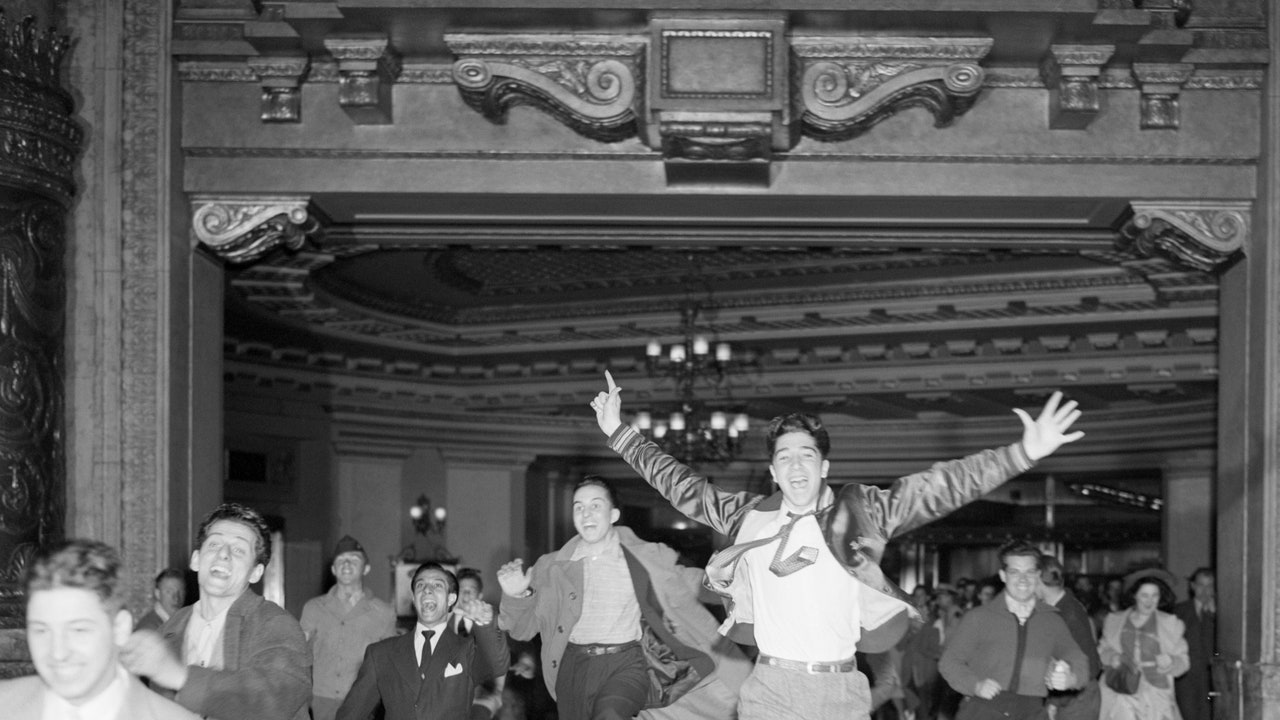Hollywood may be full of storytellers, but they’ve been struggling to write an ending for the writers strike. A hoped-for deal in July between the Writers Guild of America and the biggest studios never materialized. Instead, some 160,000 actors joined writers on the picket lines. A round of August talks between the WGA and Alliance of Motion Picture and Television Producers only inflamed tensions, and Labor Day came and went without a resolution. Now, the work stoppage is stretching into its fifth month, threatening to paralyze production for the remainder of the year, and people are desperate for good news. Maybe that’s why even those who’ve been burned before are feeling hopeful one more time about a new meeting.
“There’s optimism,” says a well-placed studio source. “People are feeling the economic pressure and the realities of how long this has gone on. It’s impacting everyone, from the biggest corporations to the hairstylists to the restaurants. There’s a shared desire to get back to work.” At screenings this week, reps for top talent have been giddy at the possibility of a deal. On the picket lines, writers have had an extra pep in their step. Adds another source with studio connections, “There’s a sense around town that they’re going to get it done.”
For those inclined to see the glass half full, there are plenty of reasons to believe that a deal is coming, like the fact that California governor Gavin Newsom says he’s now playing peacekeeper. He told CNN’s Dana Bash on Monday that he’s been “deeply involved in talking to WGA and members of the studios over the last week” and that he’s “encouraged by the conversations over this last weekend.” And while the WGA and the AMPTP haven’t formally met in nearly a month, two sources say the CEOs—particularly David Zaslav and Bob Iger, whose legacy businesses are feeling the pressure more than their streaming counterparts—have remained engaged behind the scenes.
For now, both sides are playing nice. Their statements about their upcoming meeting, scheduled for Wednesday, September 20, have been short and without fiery rhetoric. “You might not hear from us in the coming days while we are negotiating,” the WGA emailed its members on Monday, “but know that our focus is getting a fair deal for writers as soon as possible.”
The fallout from the strikes continues to mount. It wasn’t lost on many that this Monday should have been the 75th Annual Emmy Awards. Instead it was day 139 of the stoppage. If it stretches even two more weeks, it will be the longest strike in WGA history. (The 1988 writers strike, which lasted 154 days, is the longest on record.) Last week, talk shows including The Drew Barrymore Show and Real Time With Bill Maher attempted to stage comebacks without their writing staffs but ultimately bowed to criticism about crossing picket lines and postponed their returns. Bill Maher, for his part, said he was waiting because contract negotiations were set to resume.
The studios and streamers have had to make painful decisions about whether to push movie premiere dates (many high-profile titles, like Dune: Part Two, have been rescheduled for 2024) or offload some TV projects. Warner Bros. Discovery even recently said that it expected to take a $300–$500 million hit to its annual earnings because of the strikes. And in the last few weeks, several studios have finally suspended deals with high-profile creators including J.J. Abrams, Mindy Kaling, Lorne Michaels, and Dwayne Johnson, putting hundreds of their employees out of work.
Writers, of course, have been struggling financially for months. “The reality is, I can’t afford LA rent anymore,” Alex O’Keefe, a writer on season one of the FX breakout The Bear, recently told me. He’s been looking for part-time jobs until the strike ends, but the labor market in LA is tight right now, and employers aren’t exactly jumping to hire someone who’ll quit the minute he can join a writers room. “We’re definitely at a nadir, I’m not going to lie,” he said, adding that writers are “getting crushed economically.”
Even the wealthiest, most successful writers have had enough. A source who works closely with several high-profile scribes says many have been fielding calls from out-of-work crew who want to know when they’ll get paid again. “The pressure is mounting,” this person adds. A group of top showrunners, led by Black-ish creator Kenya Barris and Fargo creator Noah Hawley, recently asked to meet with WGA leaders for an update on the negotiations.
Everyone in Hollywood has become more than a little gossip-wary as the strikes have stretched on. No one Vanity Fair spoke to for this story was willing to go so far as to predict when the strike will be over. After all, they’ve been here before. When WGA and AMPTP went back to the negotiating table in August, there were whispers that a deal was nigh. The AMPTP made a new offer with concessions on some key issues, including AI protections, but the WGA said it wasn’t “nearly enough.” The AMPTP publicly released its counteroffer, frustrating the WGA, and talks stalled.
When a deal is finally reached, Hollywood won’t be able to immediately get back to work. WGA members first will have to vote to ratify the contract. And production won’t be able to restart as long as actors are still marching. “It’s going to continue to be a bumpy ride,” says Stephen Galloway, dean of Chapman University’s Dodge College of Film and Media Arts.
But this being Hollywood, many are already starting to craft narratives about what these many months of hardship have meant. “I tell people, we’ve already won,” says the writer O’Keefe. “This strike was won before it even started because we seized our own power as writers, as storytellers, and we told the story of what was really going on.”




